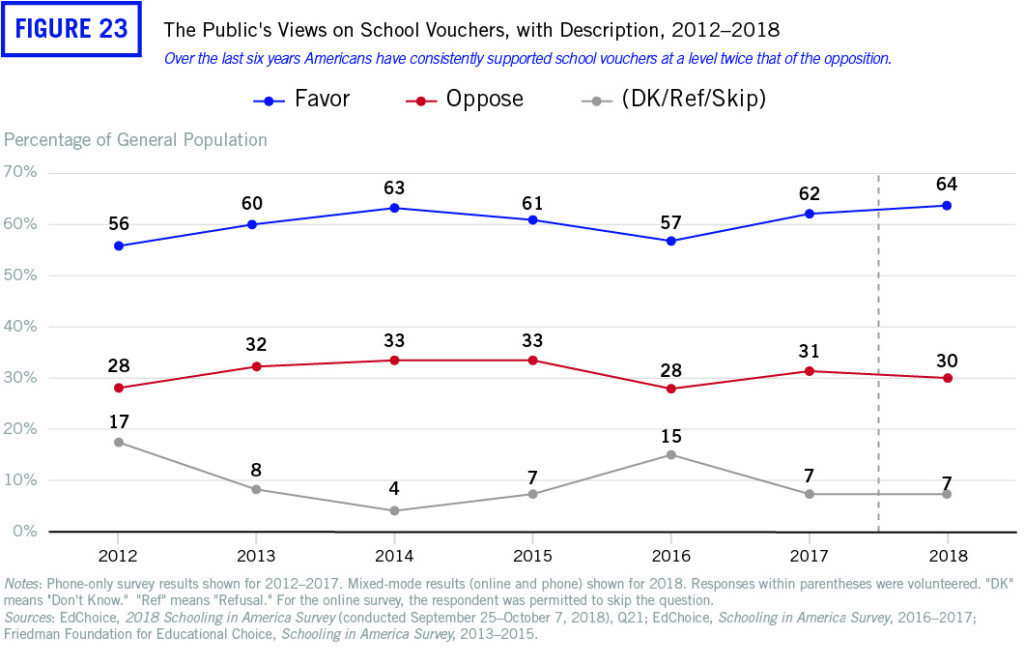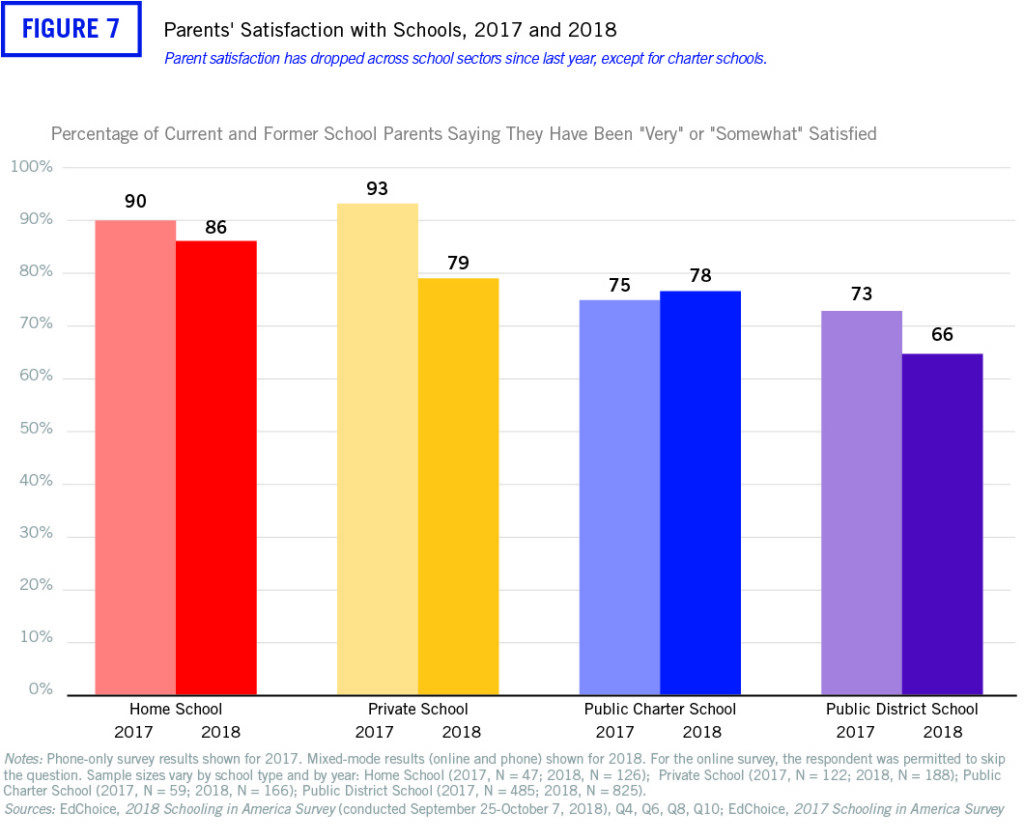
More than half of current public school teachers support school vouchers and charter schools, according to EdChoice’s annual survey of Americans’ views of education.
What’s more, 78 percent of those same teachers surveyed support education savings accounts (ESAs). Step Up For Students, which publishes this blog, administers Florida’s Gardiner Scholarship, the nation’s largest education savings account for students with special needs.
“I think it is interesting like the general public, teachers are more supportive of ESAs than the other types of choice programs,” said Michael Shaw, coauthor of the report and research assistant at EdChoice. “It does make me believe that in working with individual students on the ground level they see that students may need additional needs or other services not always provided in a traditional classroom setting.”
The sixth annual Schooling in America survey released today gauged the general public’s opinion on testing, school choice and state accountability systems. The report surveyed 1,803 adults 18 and older. For the first time, the report sought the opinion of 777 public school teachers.
The report investigated four research questions:
- What are parents’ experiences in K-12 education and local schooling?
- What are public school teachers’ professional experiences and preferences in K-12 education?
- How does the general public, as well as teachers and parents, view state accountability systems in K-12 education?
- What are the levels of support and opposition for different educational choice policies?
Overall, the report found broad support for school vouchers, tax credit scholarships and education savings accounts. That includes 54 percent of teachers who support school vouchers, and 57 percent who support charter schools.
Parents were more satisfied with private schools than public schools, while homeschooling received the highest level of parental approval – 86 percent. Even so, there was a 14 percent decrease in parents’ satisfaction with private schools. However, satisfaction with district schools, private schools, and homeschooling all declined since last year. Only charter schools saw an increase in parental satisfaction.
Parents’ experiences in local schooling

Among the current and former school parents surveyed, 40 percent would prefer to send their child to a private school, while 36 percent chose a district public school. Meanwhile, 13 percent would want to send their child to a charter school, and 10 percent prefer homeschooling.
Although parents exhibit a diverse array of schooling preferences, according to the survey, about 82 percent of students attend public district schools. Only 10 percent attend private schools,5 percent attend charter schools, and 3 percent are homeschooled, the report says.
Respondents choosing private school, public charter school, or homeschooling were more likely to “prioritize individual attention, one-on-one class size and student teacher ratio.” Those who prefer district public schools say they provided them some aspect of socialization.
Educational choice polices and reforms
In the six years respondents have been polled on education savings accounts, this year saw the highest level of support, with Americans four times more likely to support the choice option – 74 percent versus the 18 percent who oppose it. Asked why they support ESAs, 28 percent said it was because it gave them better access to schools that have stronger academics and more flexibility and freedom. Those opposed to ESAs stated they did not want to divert funds from public schools and were afraid of fraudulent behavior.
Support for ESAs topped 70 percent for members of nearly every demographic, including race/ethnicity, gender, household income, generation, political party, and region.
“As our survey goes on we are getting more of the millennial parents coming into the fold,” said Shaw. “Those are the kind of generations that are used to more choices in their life from technological advances to general prosperity. As more and more become parents it will be interesting to see if the favorability continues to grow for ESAs.”
Overall there was also strong support for school vouchers — 64 percent, compared to 30 percent opposed. The report notes that since 2013, support for vouchers has “ebbed and flowed between the mid-50s and low-60s.”
As with ESAs, the survey found younger Americans are more likely to support vouchers than seniors. However, many demographic subgroups showed better than 60 percent support for vouchers, including urbanites, African Americans, and current school parents. Current public school teachers and college graduates expressed lower levels of support, although still over 50 percent.
Like school vouchers, those surveyed were favorable of tax-credit scholarships. Two out of three expressed support for those programs compared to about a quarter who oppose them. (Step Up For Students also manages the Florida Tax Credit Scholarship for low-income students.) Support for tax credit scholarships has remained at the same level since 2013, the report says.
Support for charter schools also remains relatively high and unchanged from 2017, with 61 percent in favor compared to 29 percent who oppose them.


